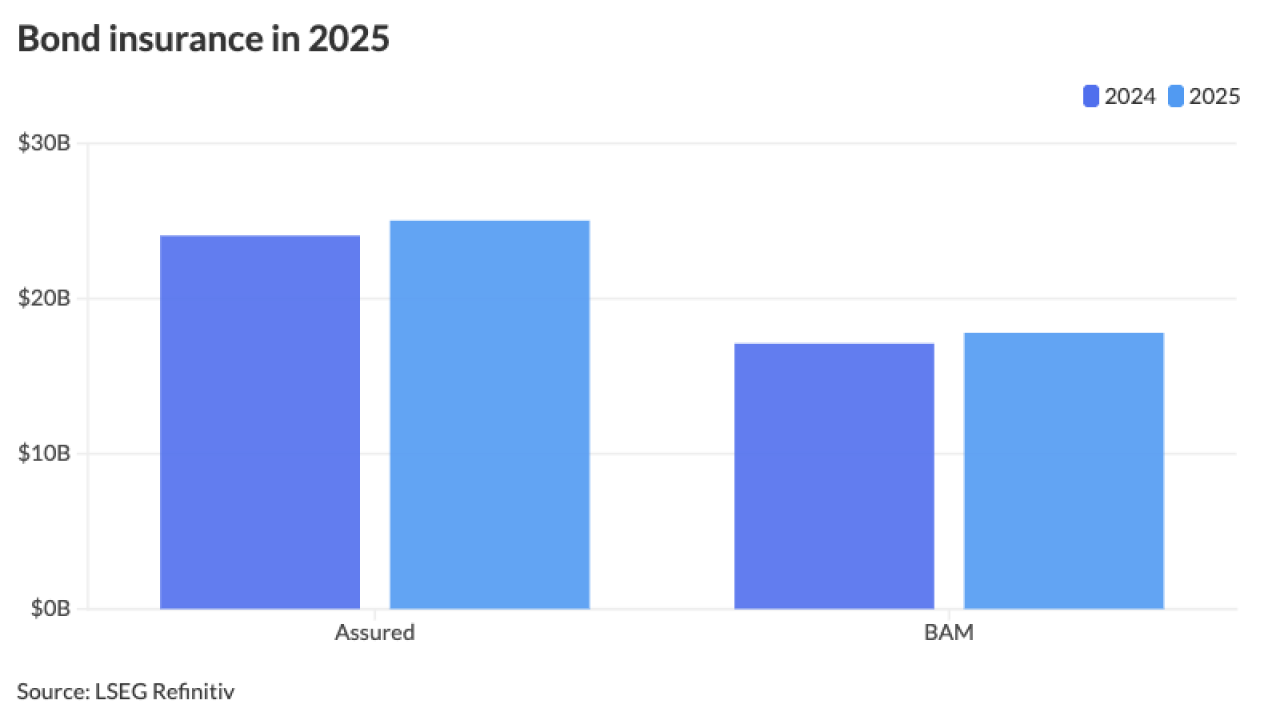
WASHINGTON -- The Internal Revenue Service has published a new revenue procedure updating management contract safe harbors to address certain types of compensation, the timing of the payment of compensation, the treatment of land, and the methods of approval of rates.
Rev. Proc. 2017-13, released Tuesday, modifies and supersedes Rev. Proc. 2016-44, which was released in August.
Rev. Proc. 2016-44 had left bond attorneys asking questions regarding whether certain types of compensation, including capitation fees, periodic fixed fees, and per-unit fees would continue to be seen as not providing a share of net profits under the new guidance, in the same manner as under the previous guidance. According to IRS officials, the new guidance puts back in the specific types of compensation that were previously included under Rev. Proc. 97-13, the predecessor to Rev. Proc. 2016-44.
"To provide continuity with the previous safe harbors, this revenue procedure clarifies that these types of compensation and certain incentive compensation will not be treated as providing a share of net profits or requiring the service provider to bear a share of net profits," the revenue procedure reads.
Treasury Department associate tax legislative counsel John Cross said this was a top priority in crafting the new guidance, which he added "broadens the scope" of its predecessor revenue procedure.
"The most important thing was clarifying that longstanding types of compensation don't give rise to net profits," Cross said.
The new guidance was widely well-received by the bond community. Stefano Taverna, an attorney with McCall, Parkhurst & Horton in Dallas, and chair of the American Bar Association's tax-exempt financing committee, called the clarification a "very welcome change."
The new revenue procedure clarifies that annual compensation with reasonable consequences for late payments are not contingent upon net profits or net losses if the contract states the qualified user will pay the deferred compensation within five years of the original payment due date.
"In any event you've got to pay the deferred compensation within a five-year window," Cross said. "Before, there was nothing on the characteristics of timing."
"I think people will like that because it is a pretty clear safe harbor within a safe harbor," he added.
The new guidance attempts to clear up any questions or discrepancies regarding land when its costs account for a significant portion of the managed property.
Under Rev. Proc. 2017-13, land will have an economic life of 30 years if 25% or more of the net bond proceeds that finance the managed property are used to finance land costs.
Cross said that the lack of defined clarity in how land is treated is now clear, which was not the case in prior guidance.
"It was not taken into account and we got some questions regarding if something had land involved," Cross said, giving a toll road as an example. "The new Rev. Proc. provides something on how to deal with land."
Finally, the new guidance clarifies that a qualified user can satisfy rate requirements by approving a reasonable methodology description set forth by or with an independent third party.
In the revenue procedure, IRS officials used a physician's professional services at a hospital or hotel room rates at a government-owned hotel.
Overall, Taverna said he was pleased with the new guidance, especially this change.
"I think overall there was a positive response, but they [IRS] addressed the concerns, especially with rate approval methodology," he said.
Tom Vander Molen, a partner at Dorsey and Whitney in Minneapolis, said that several suggestions made to Treasury, including end-of-life contract renewal clarifications, were not addressed in the new safe harbor. He said he looks forward to addressing these points at the National Association of Bond Lawyer's Tax and Securities Law Institute in March.
Vander Molen noted that although he serves as the chair of the NABL's tax committee, he was not speaking on behalf of that group.
"I think generally speaking this is a big step forward," Vander Molen said. "It's a much improved safe harbor and the Treasury Department and IRS did a great job of addressing most of our concerns."
"I think Treasury and IRS need to be commended for listening to our requests," he added. "I mention outstanding questions that still remain, not so much as criticism but as something we as a community need to talk about how to deal with as it is not explicitly covered by the safe harbor."
Rev. Proc. 2016-44 modified and superseded the Rev. Proc. 97-13, which had been released in 2013. It extended long-term management contracts to up to 30 years from the previous 15-year limit and removed the formulaic fixed fee requirements for manager compensation. It allowed for management contracts to be more accessibly used in bond-financed infrastructure projects and public-private partnerships, and applied to any management contracts entered into by or on Aug. 22.
However, safe harbors in Rev. Proc. 97-13 could be applied to any contract entered into before Feb. 18 of this year.
Although those safe harbors were initially seen as less restrictive than their predecessor, Rev. Proc. 97-13, bond lawyers soon began to question the clarity of Rev. Proc. 2016-44 and how it could be implemented.
Bond lawyers also questioned whether the term of a contract is retested when one if modified or a new one is entered into.
The new guidance was well-received by Ed Oswald, a partner with Orrick, Herrington, and Sutcliffe in Washington.
"Generally, I think that Rev. Proc. 2017-13 is very helpful," Oswald said. "The new Rev. Proc. affirms prior guidance in this area and fills in the gaps created by Revenue Procedure 2016-44."
"That being said," he continued, "it appears that a manager's compensation under 2017-13 includes the reimbursement of any payments made by the manager to its employees. Under Rev. Proc. 97-13, the reimbursement to the service provider for actual and direct expenses paid by the service provider to unrelated parties is not generally treated as compensation. Under 2017-13, a manager's employees are treated as a related party."





